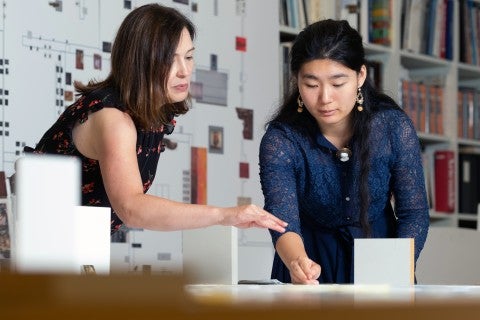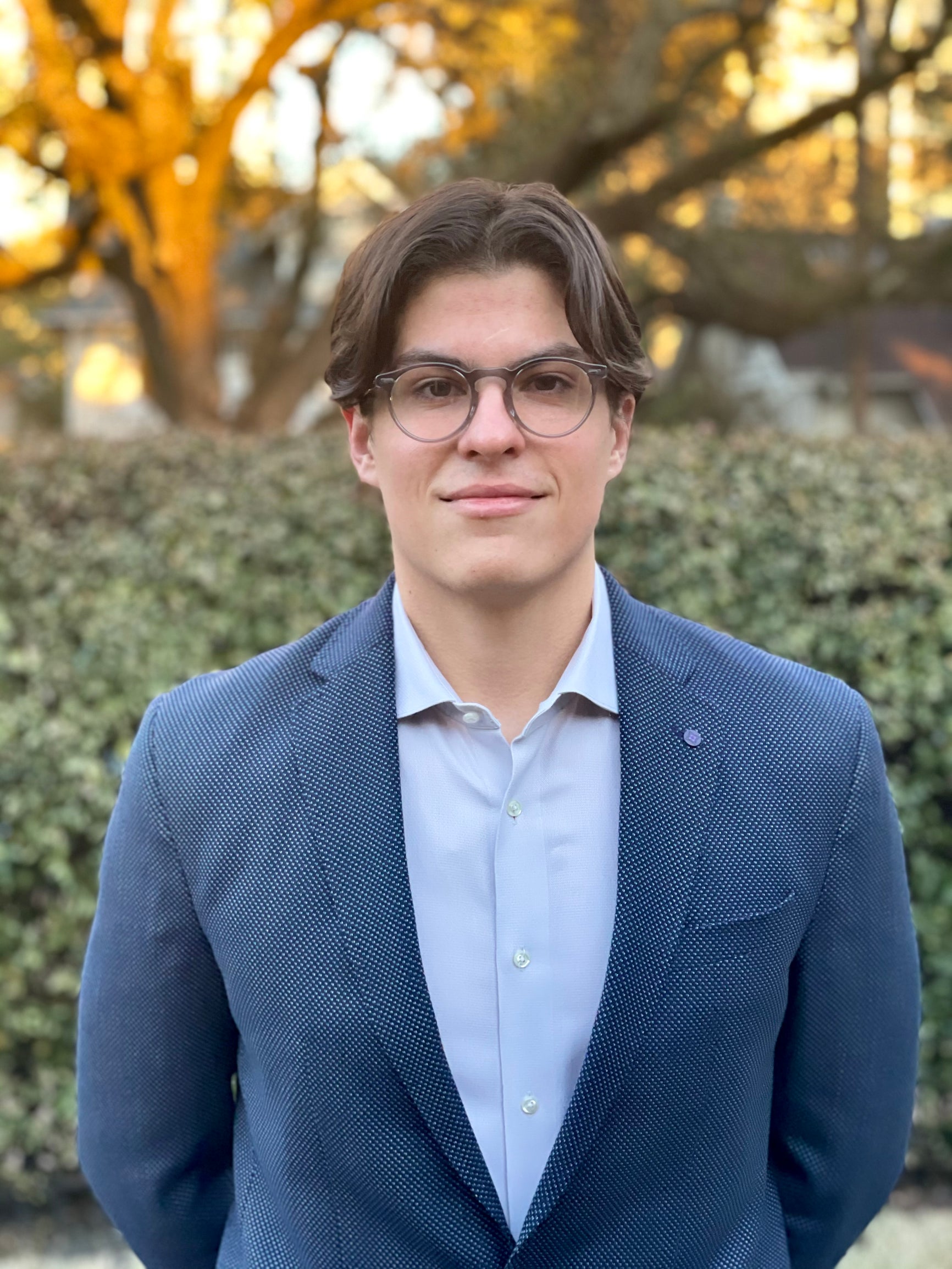For graduating humanities students at Rice, the question of how their knowledge should be practically applied to a career can generate uncertainty. During an internship focused on augmenting creative, educational and civic engagement with Houston’s Latinx community, English and Philosophy major Jesse Aranda-Comer ’21 (Baker College) found that pragmatism and passion need not be mutually exclusive. In fact, they’re fundamentally interdependent in fostering meaningful professional relationships and turning ideas into action.
Last summer, Aranda-Comer volunteered at Nuestra Palabra: Latino Writers Having Their Say, a Houston-based nonprofit that seeks to provide avenues for Latinx artistic and literary expression as well as democratic participation and representation. With financial assistance from the School of Humanities’ HEDGE summer internship program and the Joseph E. Kruppa Endowed Internship Award, a Humanities award given to students majoring in English, Aranda-Comer set out to develop a grant proposal for $50,000 to the National Endowment for the Humanities to revamp Nuestra Palabra’s online repositories of Latinx politics, news, literature and arts.
Tony Diaz, founder of Nuestra Palabra and local advocate for Latinx literary communities, told Aranda-Comer about the struggles facing Houston’s Latinx communities that the nonprofit hopes to address. One in three Latinx people in Houston live in “hard to count” census tracts, which leads to disparities in political representation and public resource allocation.
“[Diaz] was saying, ‘Listen, if they don't have representation, they don't have a voice,’” says Aranda-Comer. “‘We live in a representative democracy, and without representation, you don't exist.’ So, that was a reckoning moment when we decided we needed to do something.”
Aranda-Comer describes Diaz as a passionate ideator and saw himself using the skills he amassed throughout his studies at Rice to help bring Diaz’s visions for the nonprofit to fruition.
“There was passion in that moment,” Aranda-Comer says. “B[lack] L[ives] M[matter] was so inspiring that I had to rethink what I could do for my community within the context of the training I've received at Rice as principally being writing, collaborating, creating connections and trying to open the dialogue to incorporate more people, particularly underrepresented underserved communities.”
As Aranda-Comer set out to write the grant that detailed how Nuestra Palabra’s community engagement and accessibility could be expanded, he quickly found out that it was not a task he could take on alone. He enlisted the help of fellow Rice students Jacob Tate ’22 (Sid Richardson College) and Sarah Swackhamer ’22 (McMurtry College), who Aranda-Comer says were pivotal to completing the grant thanks to their expertise in business analysis and communications. This collaboration with his Rice peers as well as other Nuestra Palabra volunteers and community partners such as the Houston Metropolitan Research Center was rejuvenating amidst the difficulties posed by the COVID-19 pandemic.
“What this grant taught me is that any long-term project will be naturally collaborative,” Aranda-Comer says. “What’s been odd about this time we're living in is that in place of social intimacy, we've had to navigate things via Internet mediums, and that's changed the way we feel or connect with people… the social fabric has been sewn in a way that's not comforting anymore. After getting vaccinated, we need to dispel some of this hysteria... we need to seek each other out and we need to find allies and create new ground and new terrain for topics like underrepresentation of Latinx communities.”
As Aranda-Comer prepares to seek professional opportunities, including positions within grant-writing firms, he says he’s been able to marry the independent creative work of conceptualization and imagination with pragmatism and collaboration — a union that is imperative for turning ideas into effective community change.
“As a thinker, sometimes I get too caught up with the creation or conceiving of a project and selling the vision to myself that I forget [to] bring it back down to ground,” says Aranda-Comer. “So, this experience was really beneficial for me to understand how to say, ‘Let's figure out the structures. Let's figure out the foundations, and let's build it up from there.’”
Though Nuestra Palabra’s grant proposal was not approved by the National Endowment for the Humanities, Aranda-Comer says the opportunity to navigate the processes of grant writing and community collaboration with Nuestra Palabra was invaluable for understanding how English and Philosophy academic background could shape and inform real-world goals. He encourages current and prospective Humanities students to be confident in their employability, and assures that there are many careers where their skills can be applied.
“Philosophy and English will teach you how to organize information, how to communicate yourself succinctly, how to be salient with your messaging, but it takes on a different format with a grant,” he says. “Grant writing is a way to make money off of all the training Rice provides you, but it's not the only way. If you stick with what you know and love… you're going to find something that speaks to you.”


